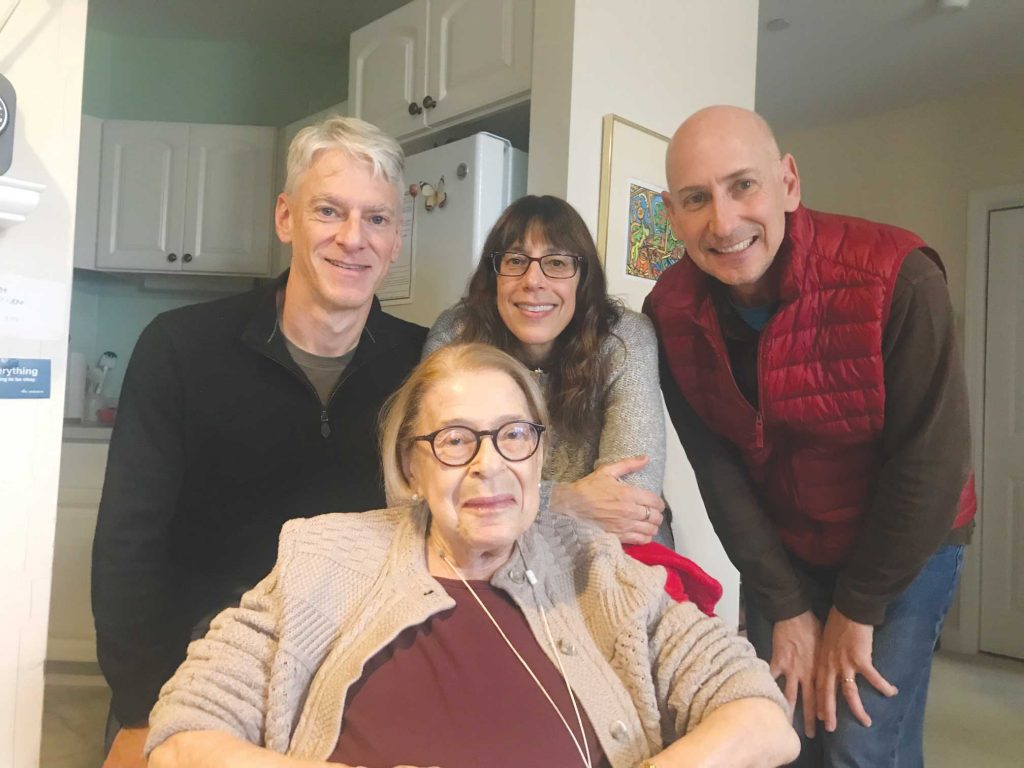Beyond the confluence of extraordinary evil and unbelievable luck lies the story of my family.
By Michael Sznajderman
My late grandmother Eva used to say that being lucky is the most important thing in this world.
Eva had her share of good luck—and tragedy. She lost her widowed mother, all three of her siblings, two brothers-in-law and at least four nieces and nephews—essentially her entire family—in the Holocaust. On my father’s side, the Holocaust also took a terrible toll.
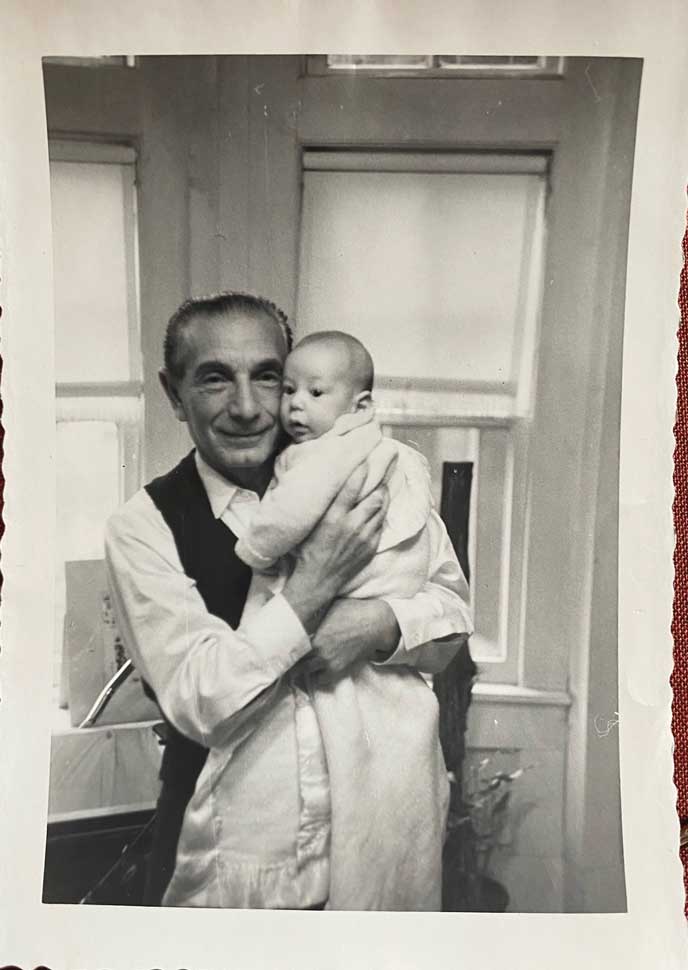
Luckily for me, my grandparents were able to escape from Nazi-occupied Europe. Lucky for me, their children—my parents-to-be, Marius Sznajderman and Suzanne Messing—met after the war in New York.
Which is why I exist.
I have family who remained in Europe through the war and somehow made it through. Others managed to flee and make new lives in new lands. Their progeny—my many cousins—live here in the States, in France, in Germany, in Venezuela, in Israel. We remain close, communicate regularly and gather physically when we can.
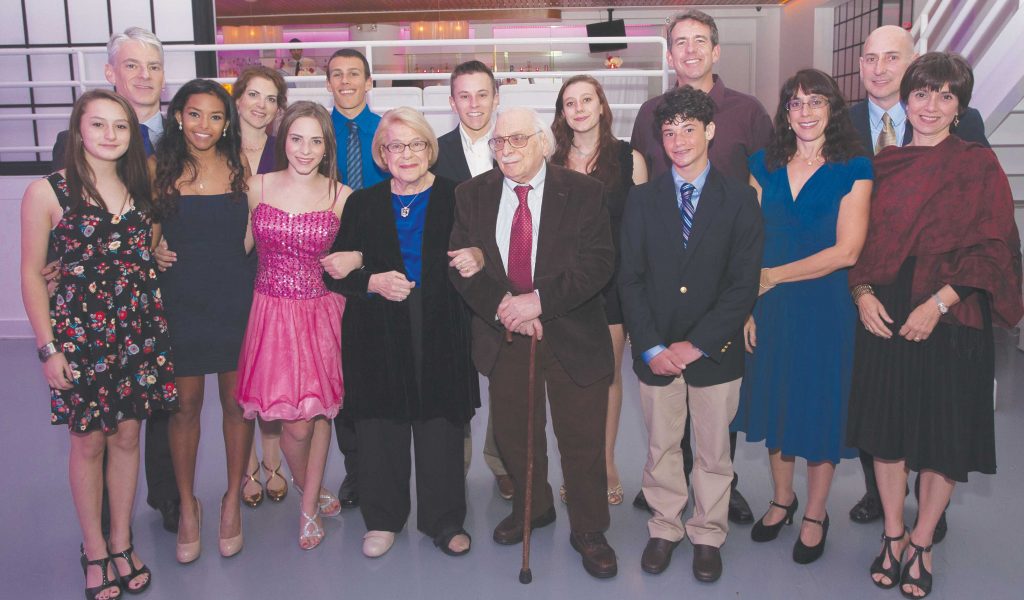
Ingenuity, persistence, courage—they all played a role in my family’s survival. And, unquestionably, luck.
The Sznajdermans and Messings lived for generations in Poland. But in the 1920s, both sets of my grandparents left for France. They became part of a large community of Polish Jews in Paris, seeking economic opportunity and less anti-Semitism. Life there wasn’t perfect, but it was better—for a time. Most of the Sznajdermans and Messings who stayed in Poland perished in the war.
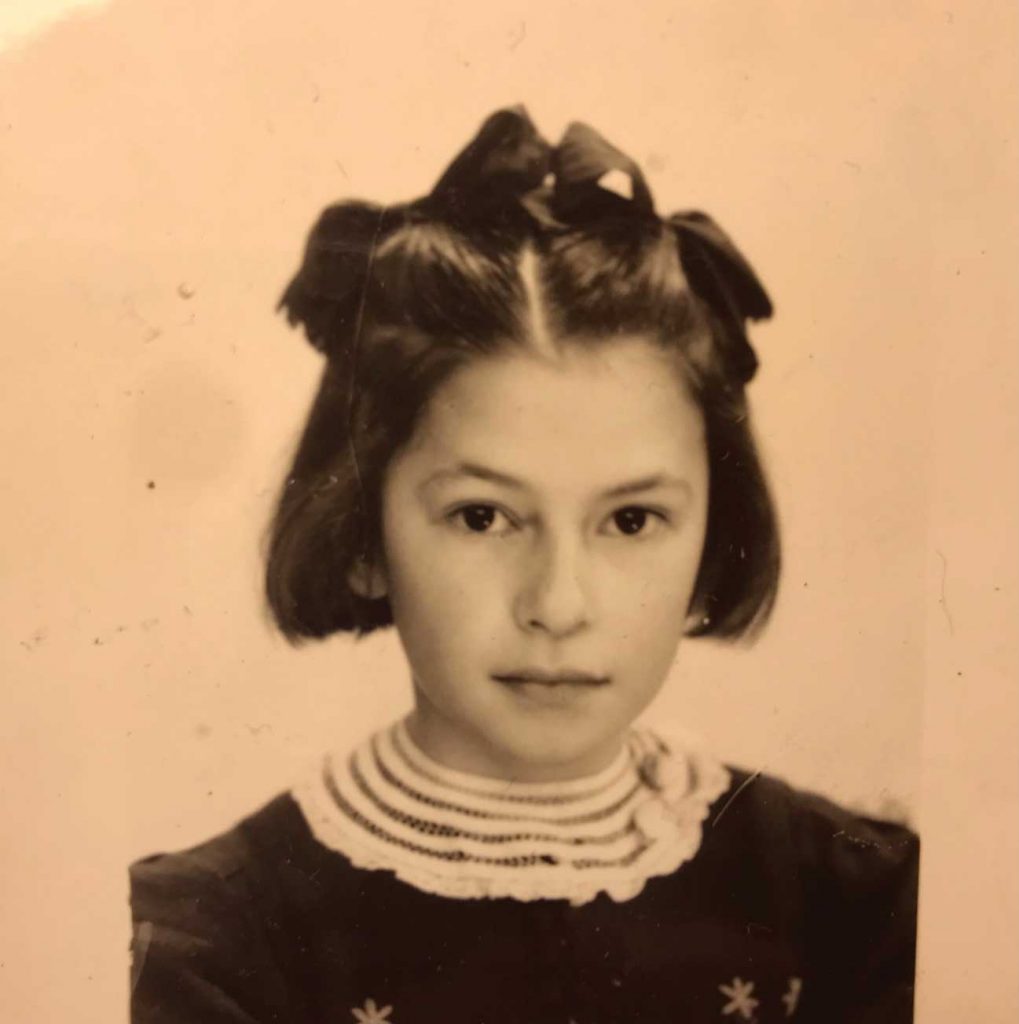
Of course, soon after occupying Poland, the Nazis invaded France. My then-8-year-old mother and 13-year-old father didn’t know each other, but they were part of the chaotic, mass exodus of Parisians who fled south just before the Germans arrived.
Among my relatives were people who survived the concentration camps and those who were murdered in them. Only recently did the last of my family’s camp survivors pass away.
One particularly tragic story is that of Esther Rosenberg, a sister of my late cousin, Judy Schneiderman. Judy and four of her sisters were prisoners at Buchenwald when Esther was killed— not by the Nazis but by friendly fire as the sisters dashed across an open field, trying to escape a U.S. attack on the munitions factory where they worked as prison laborers.
My grandfather Benjamin Messing, Eva’s husband, was one of three brothers who were all married and living in France with their young families at the start of the war. After fleeing Paris, all three families, after several stops along the way, ended up in the port city of Marseilles.
It was Benjamin’s brother Leon who sought exit visas for the three families at the U.S. Consulate there. Luckily— there’s that word again—his wife Tola had an aunt in the States. Also lucky, the two men in charge of visas there—a Quaker named Miles Standish and Vice Consul Harry Bingham—were known for their willingness to help Jews. Later, Standish and Bingham would be punished professionally for this. Indeed, just weeks after my family’s visas were issued, it became much harder for Jews to secure visas through that consul office.
But there was a problem. At first, Leon could only obtain visas for his family and for brother Maurice and his family. He did not get one for Benjamin and Eva and my mother.
When Leon’s mother, my great grandmother Telsa, found out, she was outraged. “What about Benyek?” she demanded. She told Leon to go back to the consul office. (Telsa, by the way, was among those who survived the war in France.)
In an incredibly risky gamble, it was decided to spill ink on the two visas and ruin them, and then try to blame it on the children. Leon returned to the consulate with the now-unusable visas and waited in line, again, with so many others desperate to get out. At the end of the day, Leon’s number still hadn’t been called, which meant he’d have to come back and try again.
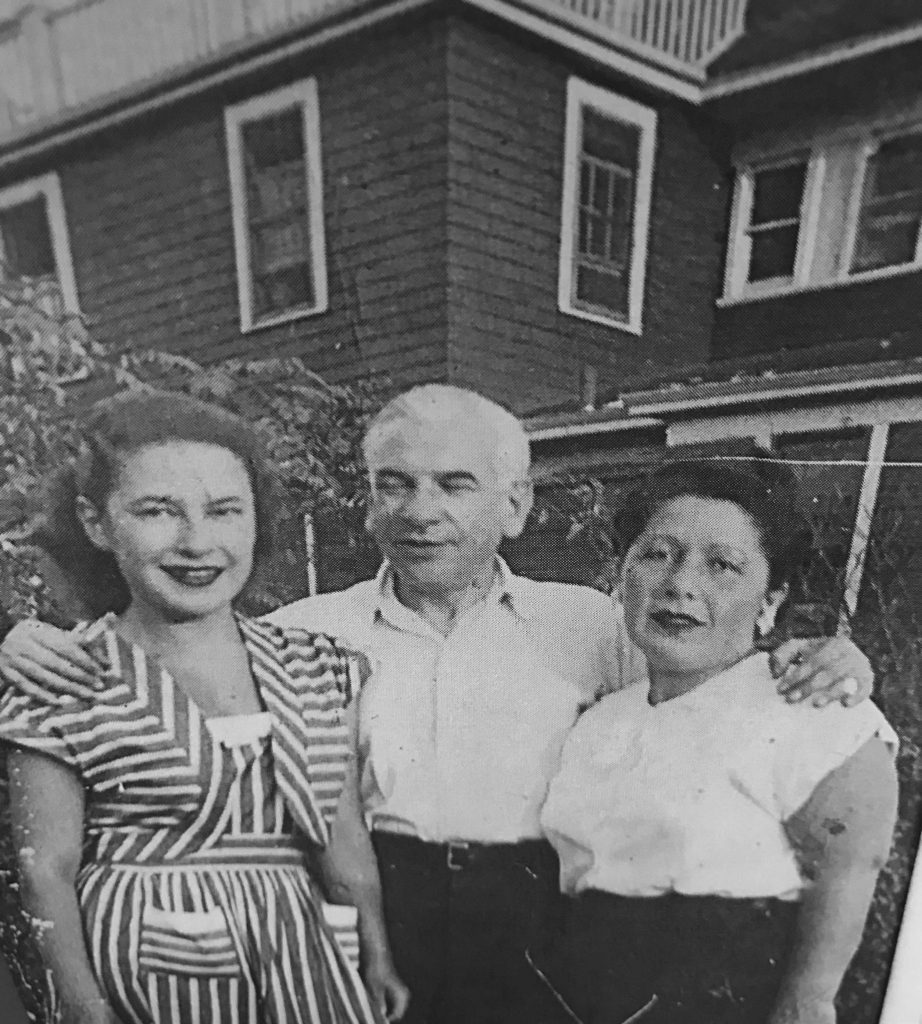
Just before everyone was turned away, Leon somehow slipped through the door. He persuaded the consular officials to replace the ruined visas and provide one more, for Benjamin’s family.
Finding passage on a ship leaving France for three families was another difficult hurdle. It fell to Maurice, who started hanging around the seedy taverns near the port. After many drinks and conversations, he learned the name of the mistress of the captain of the Winnipeg, a ship bound for Martinique. A well-placed bribe with the mistress, and passage was secured.
You can read about the Messings’ arrival in the U.S. on page 8 of The New York Times on June 14, 1941. But it was not on the Winnipeg. That ship, which flew the flag of the Nazi-collaborating Vichy government, was seized at sea by the Dutch and British before arriving in Martinique. The Messings spent more than two weeks in a British internment camp in Trinidad before being cleared to travel on to New York on another ship, the Evangeline. They arrived on Friday —the 13th. Definitely a lucky day.
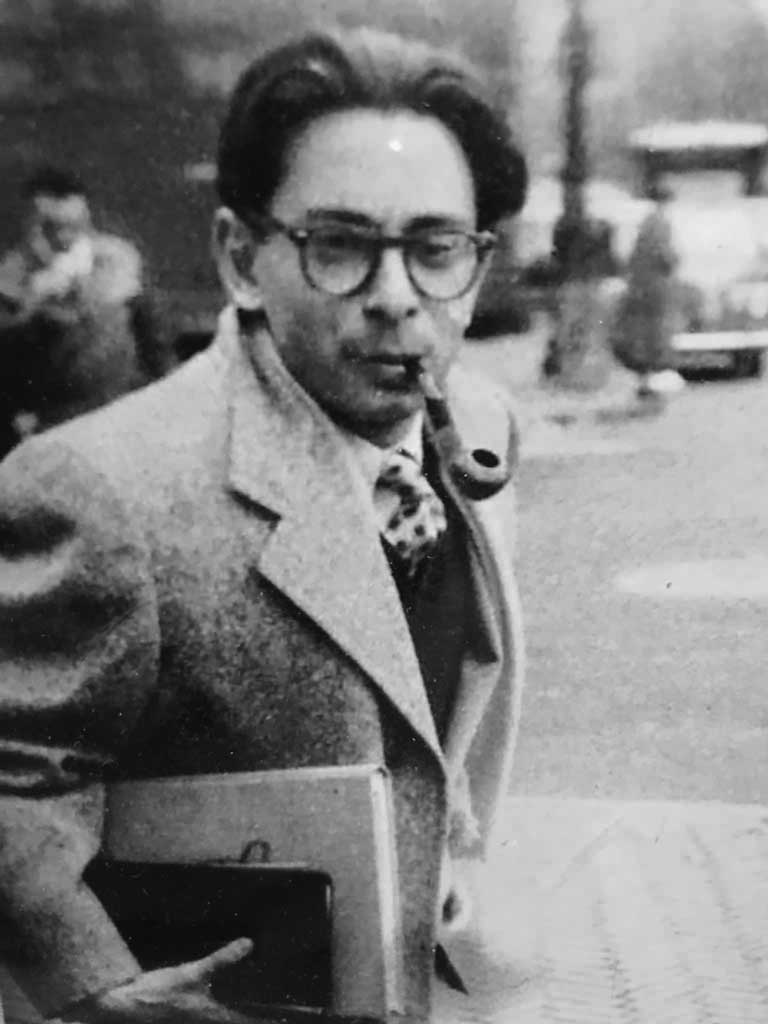
The story of my father and his parents’ escape from France is equally remarkable.
After fleeing Paris, the Sznajdermans —my father and his parents, Charles and Jeanne—lived in a series of cities and towns in southern France before ending up in Montpelier, near the Mediterranean Sea. Their first lucky break took place in Orleans, right after fleeing Paris. They had planned to board a train there for Bordeaux, but someone at the station dissuaded them. Instead, they hitched a ride on a truck. Lucky break: that train was obliterated in a Luftwaffe bombing.
Next stop was Pau, in the Pyrenees, where they were placed in a French detention camp. In another stroke of luck, my father’s uncle Jacques was there; he had been mobilized into the Polish section of the French army. Jacques insisted they get out, and with his help they managed to escape—through a hole in the fence or an open back door, my father couldn’t recall exactly. Dad did remember them running away from the camp, lugging their suitcases.
By November 1942, the situation in France for Jews had become particularly perilous. Already, more than 25,000 Jews had been deported from France to the concentration camps, including children—from both the Nazi-occupied and the “free” sections of France. Most of the deportees were murdered.
On Nov. 11—days after the allied invasion of north Africa (and, they would learn later, one day after the Nazis moved to occupy the remainder of France)—Charles, Jeanne and Marius fled for the Spanish border. They spent a cold night outdoors, in a dark corner of the station in the tiny village of Cerbere, awaiting a train that would take them across the frontier to Spain.
Patrolling the platform were men in black leather jackets—likely Gestapo, my father told me. But the Sznajdermans weren’t questioned. The next day, my grandfather waited till noon before he approached the office to get their exit visas stamped. He had been told the odds were better at midday, when any Germans at the station would be on lunch break.
The Sznajdermans arrived without incident in Spain. The next morning, they visited the Barcelona office of the Hebrew Immigrant Aid Society. (HIAS is still in existence today, helping refugees of all faiths and nationalities around the world.) The HIAS officials asked where they had come from. When Charles told them, they were stunned. “That’s impossible. The border is closed,” they said. Apparently the Sznajdermans were on the very last train allowed to cross into Spain.
There’s so much more to tell about the Sznajdermans’ journey, which took them to Venezuela. They were supposed to go to the Dominican Republic, but, as I said, there’s more to the story. They built a new life in Caracas and, years later, my father chose to emigrate from Venezuela to the States, where he was introduced to my mother, Suzanne.
One more twist to this story, however, must be told: how the Sznajdermans secured their exit visas from France.
The man responsible for approving the visas was Rene’ Bousquet, who was the friend of a friend of my father’s uncle Maurice (not to be confused with my mother’s uncle Maurice).
Maurice’s friend said he could obtain visas for all the Sznajdermans from his pal Bousquet. All he needed was fare for the train ride to Vichy. So, a piece of jewelry was sold on the black market, and the train fare—and exit visas—were secured.
At that time—October 1941, more than a year before my grandparents and father dashed across the Spanish border —Bousquet was a mid-level official in the Vichy government. Six months later, Bousquet was elevated to general secretary of the Vichy police, a position in which he began collaborating with the Nazis on the deportation of Jews. After the war, Bousquet would be held up as a war criminal, for which he was publicly condemned but not sent to prison. In 1991, after a long career in business, Bousquet was shot dead in his apartment as French authorities prepared to bring him to trial for crimes against humanity. The man who shot him declared it was justified because of Bousquet’s war crimes; he was sentenced to 10 years in prison.
So, the Sznajdermans’ escape from Europe (and my existence) is due in part to the blessing of a despicable Nazi collaborator and murderer.
Today, millions of people are, again, on the move around the world. They are fleeing persecution, violence or desperate poverty. And what they’re seeking, most likely, is the same thing my grandparents desired: a place where they can live safely and in peace.
I remember my grandparent when I think of these refugees, knowing the resolve, the ingenuity, the bravery their journeys will require. I also know they will need something that none of us can control, but that I wish for them with all my heart.
Good luck.

